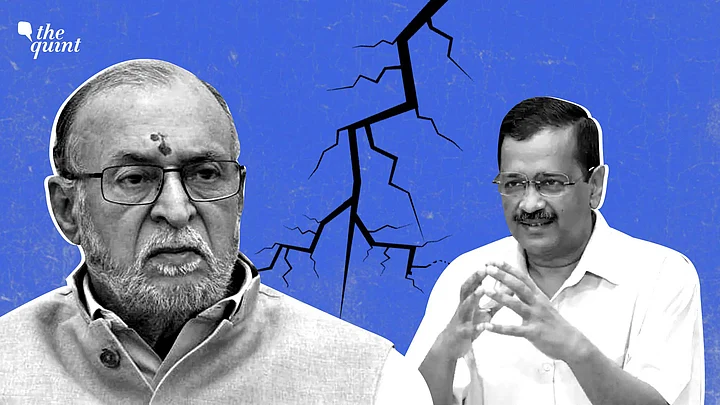Over five years after Anil Baijal took over as the Lieutant Governor of Delhi, he submitted his resignation to President Ramnath Kovind on Wednesday, 18 May, and cited "personal reasons" behind the step.
The 76-year-old took over as the LG in 2016 after his predecessor Najeeb Jung suddenly stepped down from the post. While Baijal and the Arvind Kejriwal-led Delhi government have often been at loggerheads over administrative issues, Jung's tenure was even stormier.
Baijal vs Kejriwal: Key Issues
In April 2018, the Baijal removed nine advisers and consultants to the Delhi government, including Atishi Marlena, Arunoday Prakash, and Raghav Chadha – advisors to Deputy Chief Minister Manish Sisodia on education, media, and finance respectively.
The Print reported that "the LG's office issued the order after the Union Ministry of Home Affairs raised the objection over the appointments, on ground that they were not cleared by a competent authority."
In June 2018, Kejriwal, Sisodia, and other ministers such as Satyendra Jain and Gopal Rai staged a dharna at the LG office over administrative issues.
The ministers demanded that Baijal should direct the IAS officers to end their "strike," which came in the backdrop of the then chief secretary of Delhi, Anshu Prakash, being allegedly assaulted by an AAP MLA in February that year.
During the dharna strike, Kejriwal also demanded that the LG approve the government's doorstep ration delivery scheme. The sit-in by Kejriwal and other ministers ended after nine days following an announcement by Sisodia that the IAS officers had resumed work and attending meetings.
Another issue over which the LG's office and the Delhi government sparred was that of doorstep delivery of services. In 2017, at first, the LG disapproved the proposal citing "safety concerns, and unnecessary expenditure" as reasons but approved a month later. Over doorstep delivery of ration too, the two disagreed, with the LG delaying giving clearance.
In 2020, after communal riots broke out in northeast Delhi, the Delhi government wanted to have a say in the special public prosecutors that the Delhi Police proposed for anti-CAA and riot cases but that didn't happen as the matter was instead forwarded to the president by the LG. The matter reached the Delhi High Court, where it has been pending since.
One saw a repeat of this tussle between the LG and the Delhi government when Baijal rejected the latter's proposed panel of lawyers in matters pertaining to cases relating to 26 January 2021 violence during the farmers' protest.
Amid the tussle, the Centre sought to strengthen the LG's hand with the Government of National Capital Territory of Delhi (Amendment) Bill, 2021. The Act, passed in Parliament in March 2021, received the president's assent the same month and came into effect in April that year.
The law made the LG's approval necessary for legislative affairs that concern the day-to-day governance of Delhi, as reported by The Print. The amendment meant that the expression ‘Delhi Government’ referred to in any law to be made by the Delhis Legislative Assembly shall mean the Lieutenant Governor.
This was met with criticism from the AAP.
The two were again at loggerheads over the Delhi government in 2021ordering that a committee be set up to inquire into the deaths of people due to Oxygen shortage during the second wave of COVID. This move was rejected by Baijal, citing existence of a Supreme Court-mandated committee on the same.
With Baijal's sudden resignation, the drawn-out tussle between these two parties has certainly reached a conclusion. However, given that the Delhi government has challenged in the Supreme Court the amendments to the NCT Act, the friction could continue between the upcoming LG and Kejriwal-led AAP dispensation.
(With inputs from The Indian Express, The Print, and Hindustan Times)
